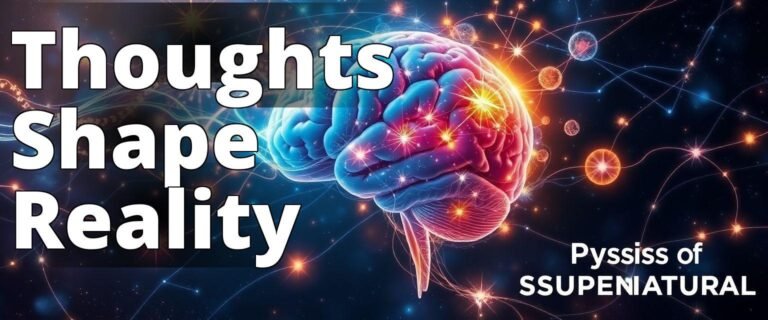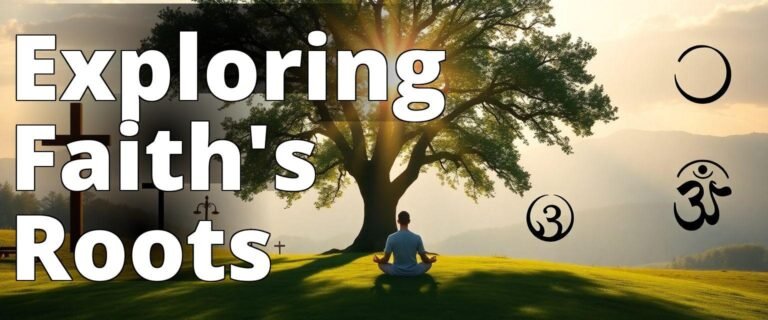The Language of the Supernatural
Is the supernatural something we can ever truly understand? Or is it simply a reflection of our own fears and desires?
The supernatural, with its ghosts, spirits, and inexplicable phenomena, has intrigued humanity for centuries. While some dismiss it as mere folklore or fiction, others swear by its authenticity. But what if our understandingor misunderstandingof the supernatural is deeply rooted in the language we use? Language has the power to shape our perceptions and beliefs, often blurring the lines between reality and imagination. In this exploration, we dive into the language of the supernatural, unraveling how it molds our comprehension of what lies beyond the natural world.
Understanding Language’s Impact
Explore how language influences our perception of supernatural phenomena.
– Language can frame our experiences, shaping how we interpret supernatural events and concepts.
– Different cultures utilize unique linguistic structures, impacting their beliefs and understanding of the supernatural.
– The way we articulate supernatural ideas can enhance or limit our comprehension of these experiences.
The Role of Language in Shaping Belief
Language is not just a tool for communication; it is the very lens through which we perceive and interpret the world. The words we choose can significantly influence our understanding of concepts, especially those as elusive as the supernatural. For instance, when we use terms like “paranormal” or “haunted,” we immediately conjure images of eerie, inexplicable occurrences. These terms carry connotations that can either validate or dismiss the supernatural as reality.
Consider how the word “supernatural” itself is constructed”super” meaning above or beyond, and “natural” referring to the physical world. The very term implies phenomena that transcend the laws of nature, setting the stage for mystery and intrigue. But does the language we use limit our ability to comprehend these phenomena scientifically, or does it open doors to new possibilities?
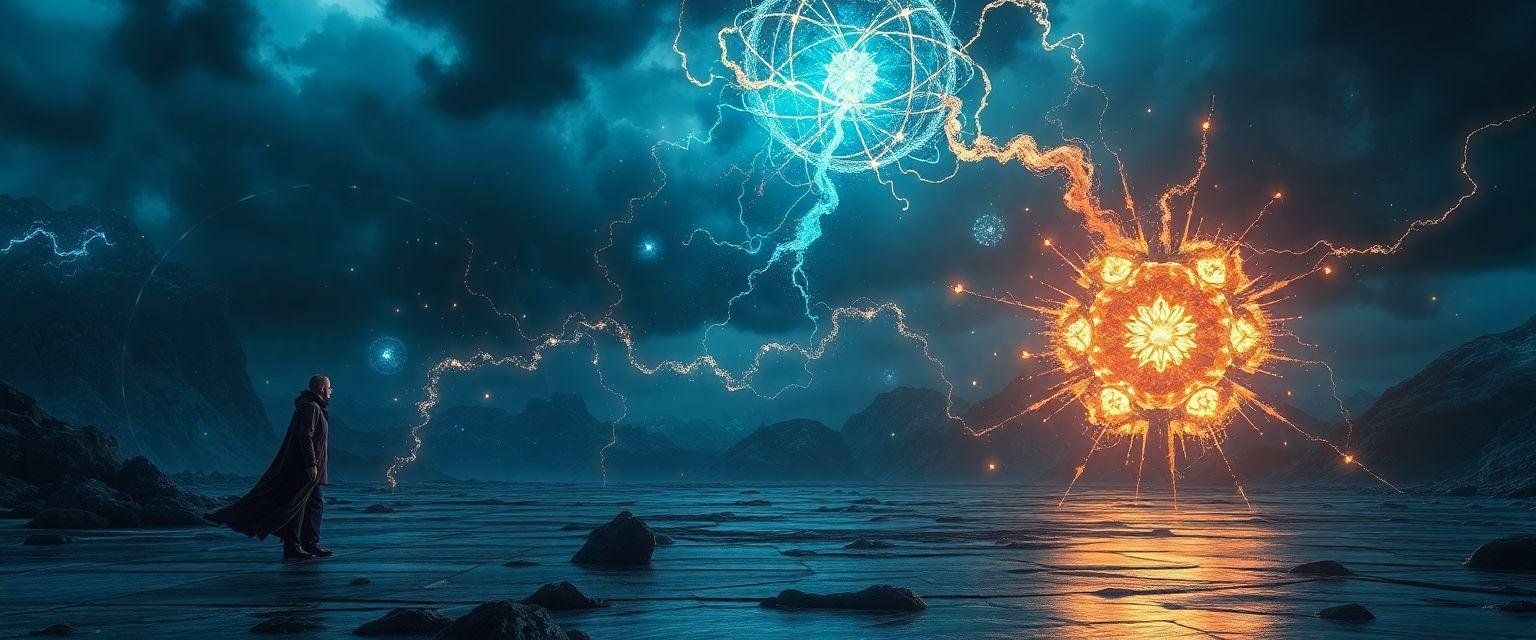
Insider Tip: Dr. Susan Blackmore, a psychologist and expert in parapsychology, suggests that our interpretation of supernatural events is often colored by cultural narratives and linguistic constructs. Understanding the language behind these narratives can offer insights into why certain supernatural beliefs persist.
Scientific Perspectives
The scientific community often approaches the supernatural with skepticism, focusing on empirical evidence and logical analysis. However, there are instances where science and the supernatural intersect. Quantum physics, for instance, challenges our conventional understanding of reality. Phenomena such as quantum entanglement and superposition suggest that reality is far more complex than we can perceive, potentially allowing for experiences that seem “supernatural.”
For example, the famous double-slit experiment demonstrates that particles can exist in multiple states at once until observed. This blurs the line between observer and observed, raising questions about the nature of reality itself. Could it be that what we label as supernatural is simply a facet of the universe that we have yet to fully understand?
Reference: For more on the intersection of quantum physics and perception, see this article on Scientific American.
Cultural Narratives and the Supernatural
Every culture has its own set of supernatural beliefs, often passed down through generations via stories and folklore. These narratives are rich with language that shapes our understanding of the supernatural. Consider the way different cultures describe spirits or ghosts. In Japan, the term “yūrei” refers to spirits bound to the physical world due to unresolved emotions, whereas in Western cultures, ghosts are often depicted as malevolent or seeking revenge.
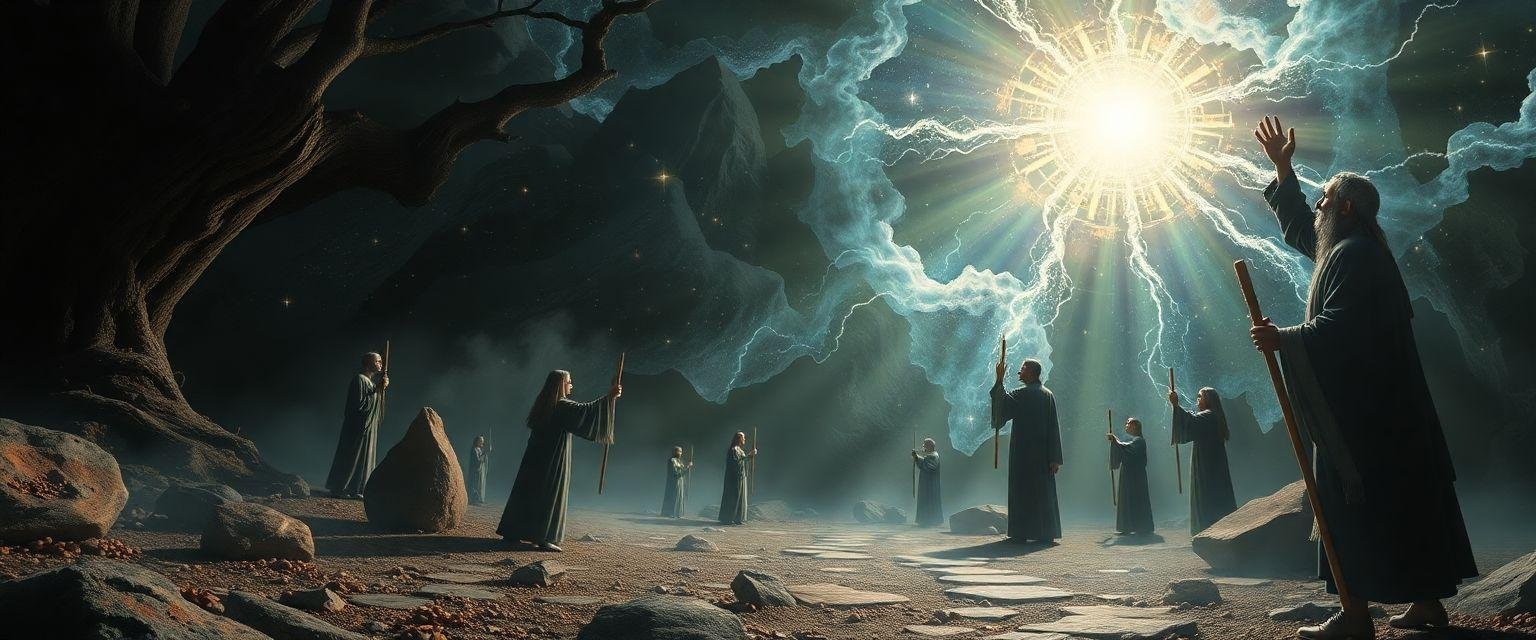
These linguistic differences highlight how culture influences our perception of the supernatural. The language used in these stories can evoke fear, curiosity, or reverence, effectively shaping our beliefs and attitudes towards supernatural phenomena.
Personal Anecdote
Growing up, my grandmother often told stories of “duppies” or spirits common in Caribbean folklore. Her vivid descriptions and the language she used made these tales both terrifying and fascinating. As a child, I couldn’t help but question the boundaries between reality and imagination. These stories, woven with cultural nuances, left a lasting impression on me, making me ponder the power of language in shaping supernatural beliefs.
Thought-Provoking Question: How do our cultural backgrounds influence our belief in the supernatural? Are these beliefs shaped more by language and storytelling than by actual experiences?
Language as a Tool for Exploration
While language can limit our understanding, it can also be a powerful tool for exploring the unknown. The supernatural often defies conventional explanation, challenging us to expand our vocabulary and concepts to accommodate new ideas. This is where speculative fiction and horror genres come into play, using language to push the boundaries of reality and imagination.
Authors like H.P. Lovecraft and Stephen King have mastered the art of crafting language that evokes the supernatural, creating worlds where the impossible becomes plausible. Their works demonstrate how language can be manipulated to explore the depths of human fear and curiosity, providing a unique lens through which to view the supernatural.
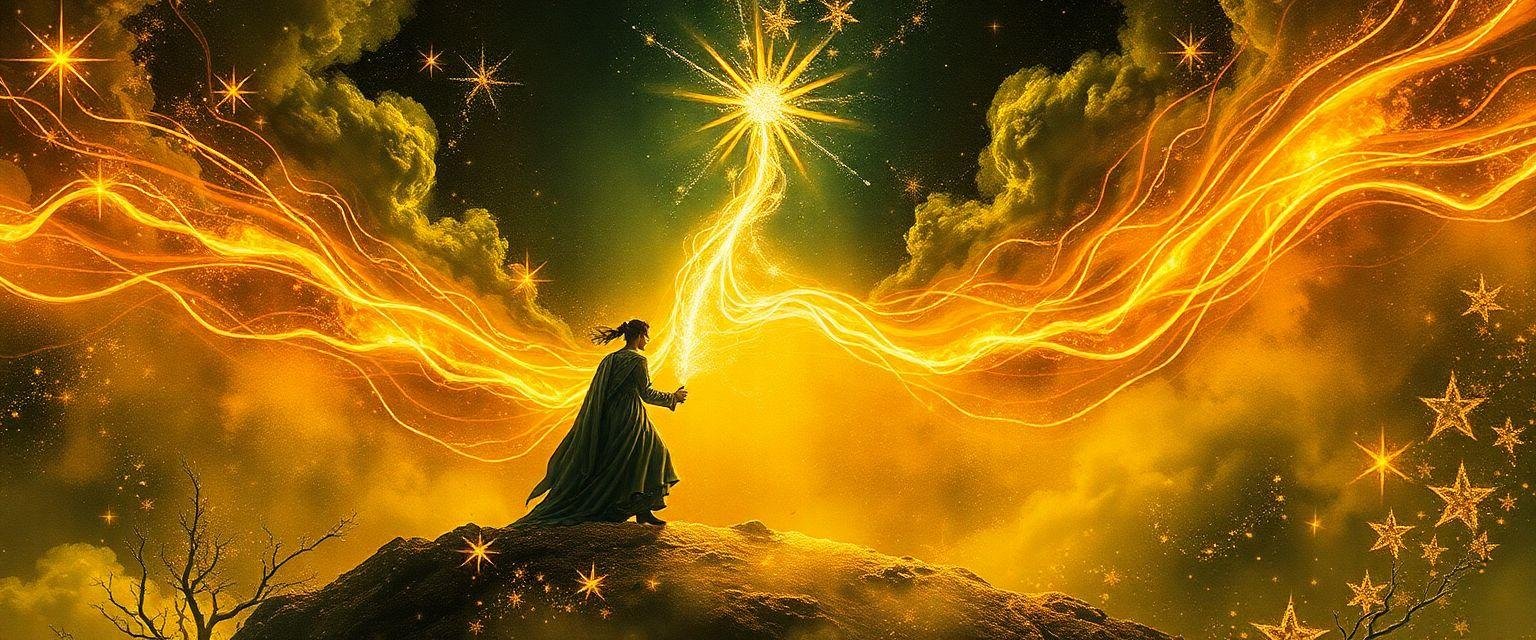
Case Study: Lovecraft’s Influence
H.P. Lovecraft’s works, filled with archaic and elaborate language, have significantly influenced the horror genre. His descriptions of ancient, cosmic entities tap into the primal fears of the unknown, illustrating how language can shape our perception of the supernatural. Lovecraft’s ability to evoke dread and wonder through language underscores its power in exploring concepts that lie beyond the natural world.
Insider Tip: According to literary critic S.T. Joshi, Lovecraft’s meticulous use of language was intentional, designed to create an atmosphere that transcends the ordinary and delves into the cosmic horror of the unknown.
The Supernatural and Modern Science
In recent years, the gap between the supernatural and science has begun to narrow, with researchers exploring phenomena that once seemed purely fictional. The language of science now incorporates terms like “multiverse” and “dark matter,” concepts that echo the mysterious nature of the supernatural. These scientific advancements challenge our traditional understanding of reality, opening new avenues for exploring what was once deemed supernatural.

Research Insights
Studies in fields such as parapsychology and consciousness research have begun to address phenomena like near-death experiences and telepathy, previously relegated to the realm of the supernatural. While these studies are often controversial, they highlight the evolving language of science as it seeks to understand the inexplicable.
For instance, the Global Consciousness Project, initiated by Princeton University, explores the potential interconnectedness of human consciousness. The project’s findings suggest that collective human consciousness may influence physical reality, blurring the line between the natural and supernatural.
Reference: Learn more about the Global Consciousness Project here.
Thought-Provoking Question: As science delves deeper into the unknown, will our language evolve to accommodate new understandings of the supernatural? How might this shift change our perception of reality?
Conclusion
The language of the supernatural is a fascinating tapestry that intertwines cultural narratives, scientific inquiry, and personal experiences. It shapes not only what we believe but how we perceive the world around us. Whether we view the supernatural as a product of language and imagination or as a tangible reality, it’s clear that our words wield immense power in defining our understanding of the unknown.
As we continue to explore the boundaries of science and language, we must remain open to the possibility that the supernatural is not just a figment of our imagination, but a reflection of the vast, uncharted territories of the human mind and the universe. The language we use will undoubtedly play a crucial role in this exploration, guiding us as we seek to unravel the mysteries that lie beyond the veil of the natural world.
For more intriguing explorations into the realm of the supernatural and the language that shapes it, visit Thin White Lies.
Final Thought-Provoking Question: What if our understanding of the supernatural is not just about what we can measure, but also about what we can imagine? Could the language we use be the key to unlocking new dimensions of reality?
Frequently Asked Questions
How does language influence our understanding of the supernatural?
Language shapes our perceptions, framing how we interpret supernatural events.
What role does language play in discussing supernatural phenomena?
Language provides the context and tools necessary for articulating experiences.
Who studies the relationship between language and the supernatural?
Linguists and paranormal researchers examine how language impacts beliefs.
How can language barriers affect our understanding of the supernatural?
Language barriers can lead to misunderstandings and misinterpretations of phenomena.
What if I dont believe in the supernatural, can language still shape me?
Even skeptics are influenced by language, shaping their interpretations and beliefs.
How can I improve my understanding of supernatural concepts through language?
Engaging with diverse language sources can broaden your perspective and insights.


